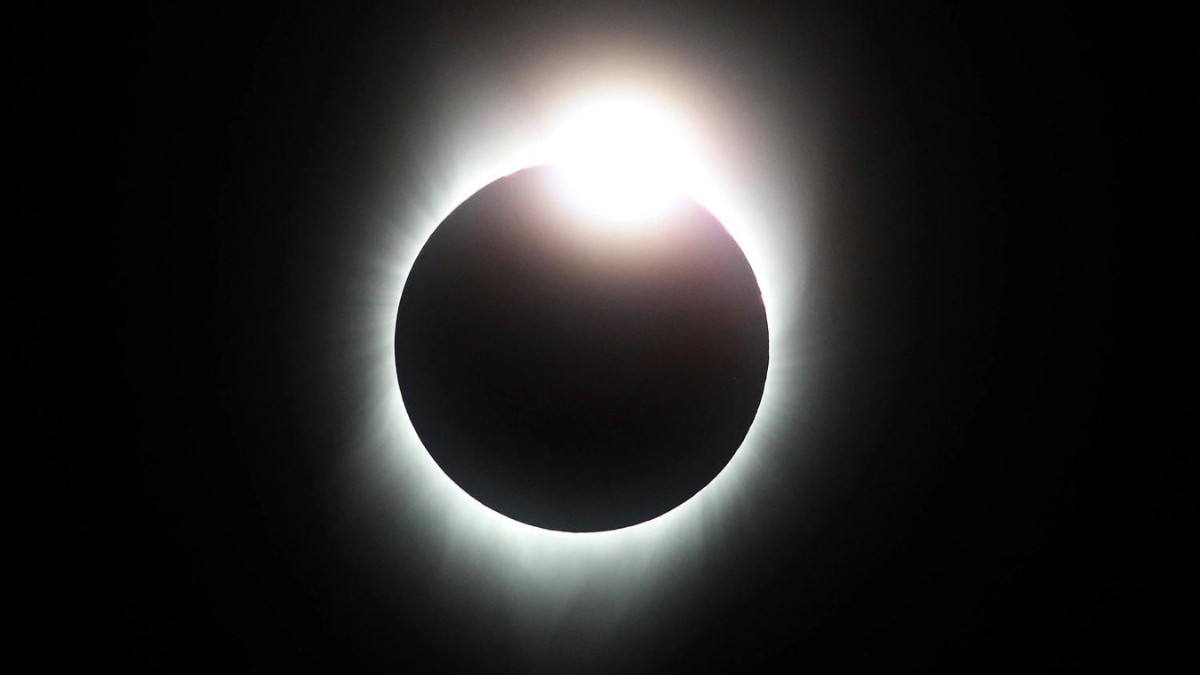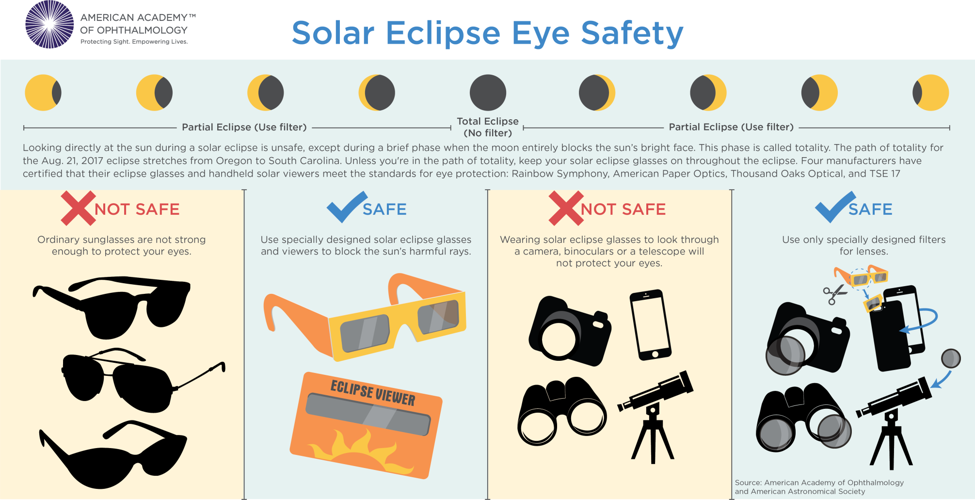Shining A Light On The Dangers: Why Is It Unsafe To Look At A Solar Eclipse?
Every few years, the universe aligns in a spectacular display known as a solar eclipse, captivating people around the globe. However, while the sight can be breathtaking, it also harbors significant dangers, especially for those who fail to take the necessary precautions. The allure of witnessing the moon overshadowing the sun can lead to serious consequences, including permanent vision impairment and even blindness. Understanding why is it unsafe to look at a solar eclipse is crucial for everyone who wishes to gaze upon this natural phenomenon without risking their eyesight. As the sun is obscured, the sudden change in light can trick our eyes into looking directly at it, often resulting in irreversible damage.
Not only is the brightness of the sun overwhelming, but the solar rays can also burn the retina—an injury known as solar retinopathy. This condition can occur without any pain, making it even more insidious. The fact that regular sunglasses are not sufficient to protect our eyes during this event adds to the urgency of the message: preparation and awareness are paramount when it comes to viewing a solar eclipse safely. Our fascination with the cosmos should never come at the cost of our health.
In this article, we will delve deeper into the reasons why is it unsafe to look at a solar eclipse, the science behind the phenomenon, and the best practices for safe viewing. By the end, you will be equipped with the knowledge to not only enjoy this celestial event but also to protect your vision while doing so.
- What Happened To Cheryl Burke
- Who Sings The Song Hey What Going On
- Where Is Chase Stokes From
- Married At First Sight Philadelphia
- Man Put Fireworks On His Head
What Happens to Your Eyes During a Solar Eclipse?
When a solar eclipse occurs, the moon passes between the Earth and the sun, temporarily blocking sunlight. As the light diminishes, you may feel a natural urge to look up. However, looking at the sun—even for a brief moment—can lead to severe eye damage. The following factors contribute to the danger:
- Increased UV Radiation: The sun emits harmful ultraviolet (UV) rays that can penetrate the eye and cause damage to the retina.
- Retinal Burns: Just as the skin can get burned from too much sun exposure, the retina can suffer from burns that can lead to permanent vision loss.
- Afterimage Effects: The eyes may not immediately register the damage, leading to a delayed realization of vision impairment.
Why is it Unsafe to Look at a Solar Eclipse Without Protection?
Many individuals mistakenly believe that they can safely observe a solar eclipse without specialized eyewear. This misconception can result in serious consequences. Here are a few essential points to consider:
- Regular Sunglasses Are Not Enough: Even the darkest sunglasses do not provide adequate protection against harmful solar rays.
- Solar Filters Required: Special solar eclipse glasses or viewers equipped with ISO-certified filters are crucial for safe viewing.
- Indirect Viewing Methods: Techniques such as pinhole projectors can offer a safe way to view the eclipse without looking directly at the sun.
What Are the Risks of Viewing a Solar Eclipse Through a Camera or Telescope?
Many enthusiasts may want to capture the solar eclipse using cameras or telescopes, but this can also pose significant risks:
- Nicki Minaj Husband Charges
- Tokyo Toni Real Name
- Bob Moore Red Mill
- Phil Collins Youll Be In My Heart
- Taylor Swift And Boyfriend
- Lack of Proper Filters: Most cameras and telescopes require specific solar filters to protect both the equipment and the viewer's eyes.
- Unfiltered Observation: Looking through an unprotected lens can cause immediate and severe eye damage.
- Equipment Malfunction: Regular equipment might not handle the intensity of solar rays, leading to malfunction and potential hazards.
How Can You Safely Observe a Solar Eclipse?
To fully enjoy a solar eclipse without jeopardizing your eyesight, follow these guidelines:
- Invest in Solar Eclipse Glasses: Purchase certified solar eclipse glasses that meet the ISO 12312-2 safety standard.
- Use Indirect Viewing Techniques: Create pinhole projectors or use other indirect methods to safely observe the eclipse.
- Do Not Use Regular Sunglasses: Avoid the temptation to wear regular sunglasses, as they do not provide adequate protection.
- Plan Ahead: Research and prepare well in advance of the eclipse to ensure safe viewing practices.
What Are the Symptoms of Solar Retinopathy?
In case of unprotected solar viewing, it is essential to recognize the symptoms of solar retinopathy. Some common indications include:
- Blurred Vision: Difficulty focusing or seeing clearly.
- Altered Color Perception: Colors may appear distorted or less vibrant.
- Blind Spots: The presence of dark spots or areas of vision loss.
What Should You Do If You Experience Symptoms?
If you suspect you have suffered retinal damage from viewing a solar eclipse, take the following steps:
- Seek Immediate Medical Attention: Consult an eye care professional for evaluation and treatment.
- Avoid Strain: Minimize eye strain by avoiding bright lights and screens.
- Follow Medical Advice: Adhere to any prescribed treatment or follow-up appointments to monitor your condition.
Conclusion: The Importance of Safe Viewing Practices
As we have explored, the beauty of a solar eclipse comes with inherent risks that should not be overlooked. Understanding why is it unsafe to look at a solar eclipse is vital for protecting your eyes and preserving your vision. By taking the necessary precautions, utilizing proper protective gear, and employing safe viewing methods, you can enjoy this celestial wonder without compromising your eyesight. Remember, the cosmos will continue to offer spectacular sights, but your vision should always take precedence.
Article Recommendations
- How Many Seasons Are In How I Met Your Mother
- Scott Hall Death Cause
- Mr Cee Cause Of Death
- Man Put Fireworks On His Head
- The Big Bang Theory Tv Show



Detail Author:
- Name : Fermin Kuhn
- Username : kamryn.leffler
- Email : luella.yost@yahoo.com
- Birthdate : 1991-12-16
- Address : 68874 Robert Forges East Johann, IN 41718
- Phone : +1-248-319-0606
- Company : Kulas, Harris and Hirthe
- Job : Forming Machine Operator
- Bio : Dolorum earum et omnis tempora asperiores nihil nesciunt. Sunt omnis dolores qui omnis modi at. Ipsa eos unde corporis.
Socials
tiktok:
- url : https://tiktok.com/@audie_gleichner
- username : audie_gleichner
- bio : Quos eum magni impedit sit quae explicabo suscipit.
- followers : 6260
- following : 1298
facebook:
- url : https://facebook.com/audie6306
- username : audie6306
- bio : Delectus placeat expedita ad ut. Est voluptatem in nihil doloribus mollitia.
- followers : 4755
- following : 490
twitter:
- url : https://twitter.com/audie.gleichner
- username : audie.gleichner
- bio : Enim id mollitia nihil sit voluptatibus. Unde ullam dolor non nam qui.
- followers : 218
- following : 2817
instagram:
- url : https://instagram.com/audie.gleichner
- username : audie.gleichner
- bio : Eos quisquam neque ut ipsa ab. Soluta ab illum aperiam quasi cumque delectus quia ut.
- followers : 4969
- following : 2344